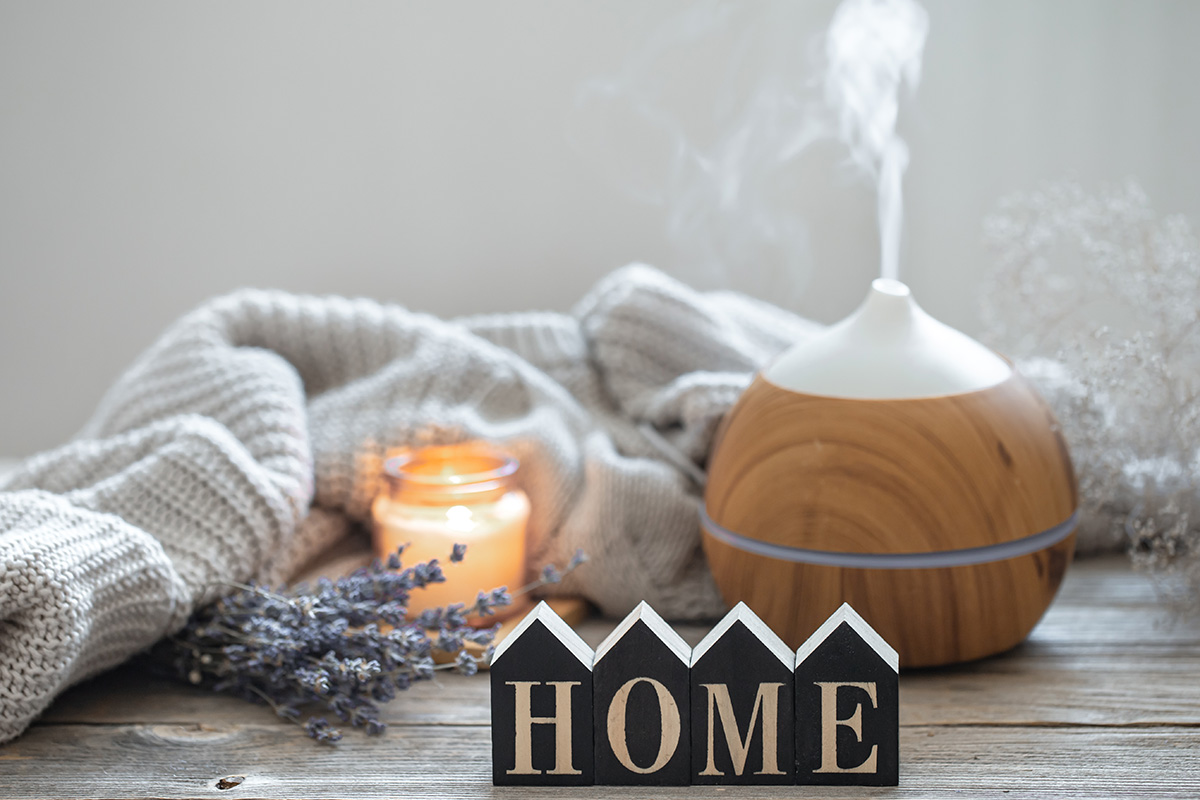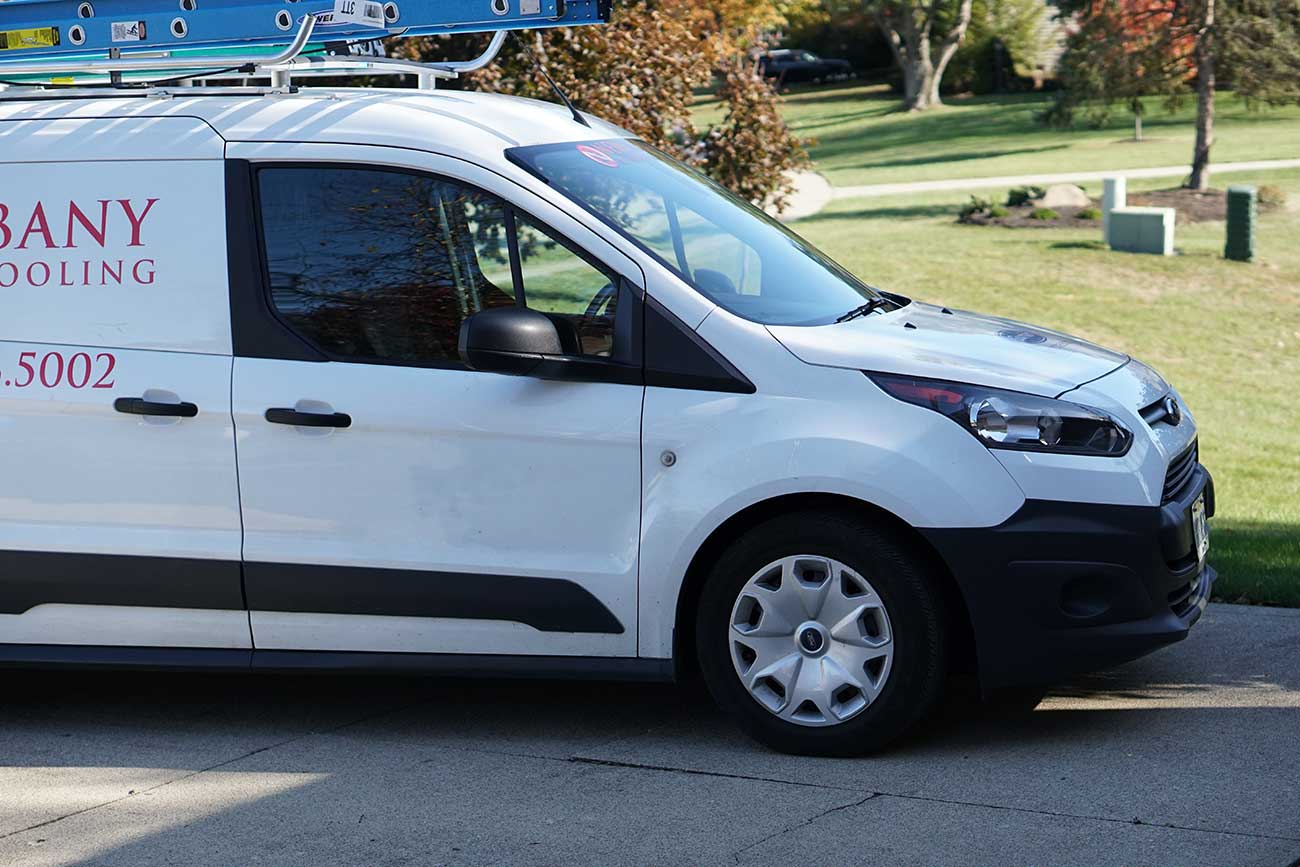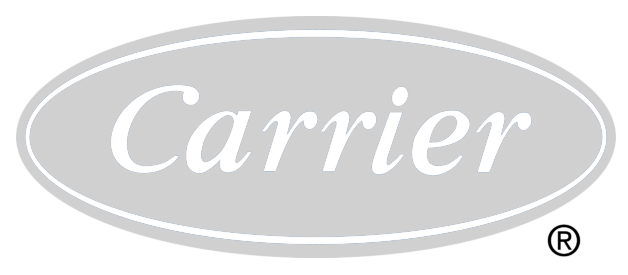What is a Humidifier?
Humidifiers are appliances that add moisture to the air in a dwelling to keep the air from drying out. Humidifiers can be for single rooms, or small areas, or for entire homes or buildings. Whole-home humidifiers work with existing HVAC equipment to add humidified air to outgoing air before it goes into throughout the ductwork and into the home. They can also work independently of your HVAC equipment to maintain humidity levels even when the furnace or air handler isn’t in use as a stand alone product.

Types of Humidifier Technology
If your home is too dry, you should consider investing in a humidifier to add moisture to the air. New Albany Heating & Cooling offers a line of humidifiers to help you optimize your home heating system in the winter and relieve dry air and low humidity issues such as wood damage, chapped lips, dry skin, flu symptoms, and allergy and asthma flare-ups. Below are the different types of humidifiers available:
Central Humidifier
Central or whole-home humidification units are installed directly into a homeowners HVAC system and work effectively to humidify the dwelling evenly throughout.
Impeller Humidifier
These are also called a “cool mist humidifier.” They utilize a rotating disc that emits water through a diffuser. This breaks larger droplets up into a fine mist. They are considered a child-friendly option, and require minimal energy to humidify a larger area. The downside is that they can be noisy and a home for bacteria, which tends to gather around the filter.
Evaporator Humidifier
These single units add moisture to the room it is placed in. Similar to how a boiling pot of water evaporates and sends moisture to the air, an evaporator humidifier works the same way. They are small and relatively inexpensive options. However, they’re only intended for a small area.
Steam Vaporizers
These portable units can be found at your area drugstore or online but keep in mind, they are known to cause burns. Be careful using them if you have pets or small children.
Ultrasonic Humidifier
This is a single unit that puts moisture in the air with the use of high-frequency sound vibrations. These vibrations produce an extra fine water mist.
Types of Humidifier Technology
If your home is too dry, you should consider investing in a humidifier to add moisture to the air. New Albany Heating & Cooling offers a line of humidifiers to help you optimize your home heating system in the winter and relieve dry air and low humidity issues such as wood damage, chapped lips, dry skin, flu symptoms, and allergy and asthma flare-ups. Below are the different types of humidifiers available:
Reduce the risk of illness. Bacteria and viruses can’t travel as well in moist air. It is possible that using a humidifier might prevent you from catching a bug during the cold season. In any case, dry air can cause a host of health-related problems.
Prevents morning sore throat. Because overly dry air affects your vocal cords, it can leave you with a dry, scratchy throat in the morning. Keeping the air moist and maintaining humidity levels during the winter helps provide relief to your vocal cords, especially while you sleep..
Comfortable sinuses. Have you ever woken up with a dry nose that felt stiff during the winter? Even if you don’t have a cold, winter air dries out the sinuses and lowers one’s immunity to airborne and other bacteria. More moisture in the air means more comfortable sinuses.
Reduces heating costs. During the summer months, the more the humidity we have in the air, the warmer it feels in our homes. This is because the excess moisture makes it feel warmer and much more sticky. The same is true in the wintertime. By adding some moisture to your air supply during these months, you’ll end up saving on your heating bills.
Healthier skin. Winter’s dry air zaps all that much-needed moisture from your skin causing dryness, which leads to skin flaking and accelerated aging. Having a humidifier can help alleviate these damaging effects, and help you maintain vibrant looking skin.
Protect Furniture. Not enough moisture in the air in your home can cause wood furnishing, woodwork and wood flooring to crack and even split. Using a humidifier helps preserve the integrity of the wood in your home.
Better Sleep. If you or someone in your home snores at night, it might be related to dry sinuses, which makes snoring worse. A moist environment that has ideal humidity levels can soothe dry sinuses, lower snoring levels and bring you the comfort conducive to a good night’s sleep.
Minimize Static Electricity. With the dry wintertime air, static electricity also becomes an issue and you have static shocks throughout the cold season. If you’ve ever felt that jarring jolt of a static shock or had your clothing stick to you, this isn’t good; it’s not good for your electronics either. Using a humidifier helps minimize, if not eliminate, static electricity in your home during winter.

General Humidifier FAQ
What is the ideal level of humidity to maintain?
Maintaining the perfect humidity level in your home is a key element for creating an environment conducive to health and wellbeing. Optimal levels should range between 40-50 percent, with anything higher inviting bacteria, mold and dust mites while anything lower increasing susceptibility to illnesses like flu or colds as well as uncomfortable respiratory symptoms.
What size humidifier do I need?
Not sure what size humidifier you need? Consider the square footage of your home and check out product specifications from manufacturers. Investing in a whole-home solution can offer great protection for wood furniture, improve air quality, and reduce heating costs. Take advantage of our special offer to find just the right fit!
How much upkeep do humidifiers require?
Installing a whole-house humidifier can be the perfect solution if you’re looking to keep your home at optimum humidity levels with minimal effort. Portable units, while also effective in doing their job, demand frequent upkeep such as regular cleanings and water refills for better results.








